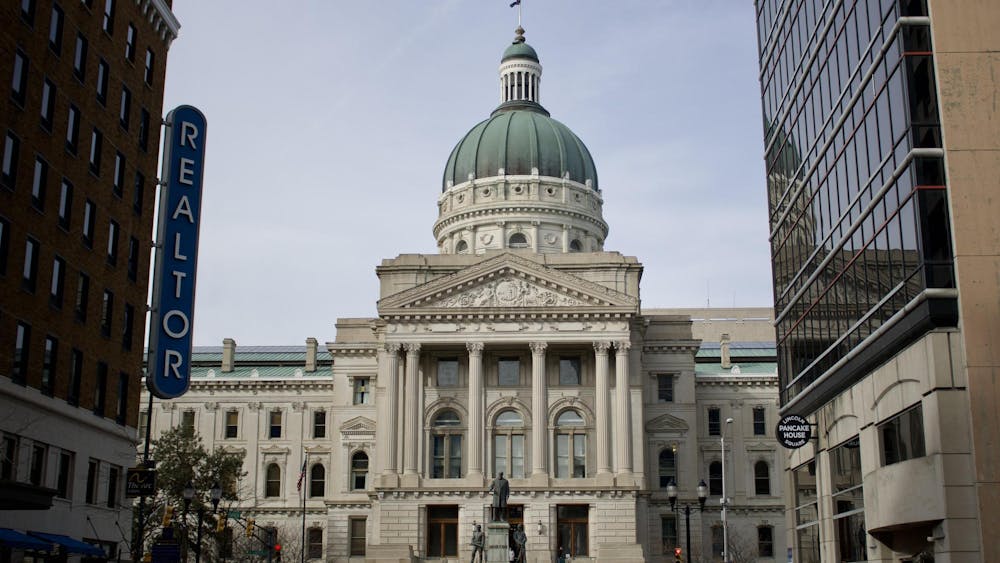A lawyer for former men's basketball coach Bob Knight sent a letter last week to inform IU that Knight intends to sue IU President Myles Brand and the board of trustees. Knight lawyer Russell Yates wrote that IU has caused Knight to suffer damages in excess of $7 million.\nAfter 29 years as coach, Knight was fired by Brand Sept. 10 for repeated violations of a "zero-tolerance" policy imposed by the University.\nThe notice of intent to sue, obtained Thursday from the University, cites slander, libel, defamation and tortious interference with potential contracts, stemming from "wrongful termination." It also cites violations of Indiana's Open Door laws and intentional infliction of emotional distress.\nYates said Knight will file a lawsuit if the University refuses to negotiate.\n"I still hope we can resolve it, but (Brand) seems to be dragging his feet in talking to us," Yates said. "We got tired of waiting."\nUniversity of Wisconsin law professor Peter Carstensen, an expert in tort law, said that if Knight chooses to file suit, it would be a tort. A tort is a civil claim in which the plaintiff seeks damages. In tort cases, the plaintiff must show that he or she received actual injury from a wrongful act, as defined by law.\nThe letter from Knight's lawyer was required to get the attention of the state and to reserve Knight's right to file a lawsuit in the future, Carstensen said.\nKnight had 180 days after his firing to file an intent to sue claim. Today marks that deadline, Yates said. and Knight now has up to two years to file a lawsuit.\nUniversity spokeswoman Susan Dillman said she hopes Knight does not choose to pursue the claim further. She emphasized the letter is a notice of intent, not a lawsuit.\n"We were disappointed and taken aback to hear the allegations contained in the notice of tort claim," Dillman said. "The charges are frivolous and totally without merit."\nDillman would not comment on whether the University will negotiate with Knight.\nTrustee Ray Richardson said Knight has no valid claim.\n"IU owes Bob Knight nothing and will pay him nothing," Richardson said.\nJohn Walda, president of the board of trustees, said the trustees do not plan to formally respond to the move because they have not been sued. He agreed with Dillman, calling the allegations "somewhat frivolous."\n"The allegations in (the tort claims notice) are clearly unsupported by any facts," Walda said.\nIn his letter, Yates said actions by Brand and the board of trustees since September 2000 have violated Knight's rights. \n"The resulting damages to Mr. Knight include lost income, pain and suffering, mental humiliation and interference with his ability to obtain subsequent employment, all totaling in excess of $7 million," Yates wrote.\nYates declined to comment on what prompted specific charges in the document.\nCarstensen said Knight's case initially sounds "weak," but he said he doesn't know what Knight's lawyers know. He said Knight might be able to receive damages, even if the case is not strong.\n"If Knight's lawyers have at least some dirt to launder, the state of Indiana might pay Knight something to go away," Carstensen said.\nCarstensen said strong evidence of libel or slander would be key to the argument. Slander and libel are untrue statements about a person that damage his or her reputation. Slander is spoken, and libel is written.\n"The real issues are the facts," Carstensen said. "If the University knew facts that were contrary to what they said about Knight, then they're in deep trouble. If they spoke the truth or the truth as they thought they knew it, then they're probably not in trouble."\nBut Indiana has never been a plaintiff-friendly state, he said, and public figures are less protected.\nCarstensen said he isn't an expert on Indiana law, but predicted some arguments that could be made by Knight's lawyers. For example, he said, statements made when Knight was fired and afterward could be potential arguments.\n"These statements had serious economic effects. They didn't just say 'you're released as a coach.' That's done all the time," Carstensen said. "But they did it in a way that would make it hard for (Knight) to get a job in the future."\nCarstensen said another potential argument of Knight's is if someone from the University was saying negative things to prospective employers or harassing Knight or his family.\nFinally, if one of the reasons given for Knight's firing was inaccurate and the University knew it, it could be liable, he said.\nIndiana Public Access Counselor Anne Mullin O'Connor said legal action under the Open Door Laws isn't really a tort, but that it could have a potential for other legal action. She said that neither side has contacted her office for advice, but that there is still time for them to do so.\nRichardson said Knight was given a second chance to coach at IU and failed. Now he should move on, he said.\n"Bob Knight should take his wife's advice and get off the horse, because it's dead," Richardson said.
Knight might sue University
Former coach's lawyer sends letter of intent to sue to Brand, trustees
Get stories like this in your inbox
Subscribe





